Trading Day: ASX extends fall, miners down amid trade turmoil
Stocks slip to a eight-day low despite a rise in US futures, with miners and banks weighing on the market and the RBA cautious on outlook.

- RBA cautious on outlook
- Cochlear loses patent appeal
- Coal ban a punishment: report
- ANZ sells stake in commercial acquiring business
That’s all from the Trading Day blog for Tuesday, December 15. Australian stocks extended losses after Wall Street slipped from early optimism about the vaccine rollout and a stimulus deal, although the Nasdaq extended its rally, rising 0.5 per cent. The Dow fell 0.6 per cent and the S&P 500 fell 0.4 per cent. Locally, the RBA released minutes of its December meeting, and there was a speech from the RBA’s head of financial stability.
Glenda Korporaal 6.21pm: Aust-China relations hit new low
Australian agribusiness companies doing business with China are worried about significant job losses as a result of the deteriorating export market as relations between Australia and China hit new lows, according to a new survey released on Tuesday by the Australian Chamber of Commerce in Beijing.
The survey of Australian agribusinesses operating in China or exporting to China — particularly those in the wine industry — showed a significant fall in business confidence over the past few months in the wake of moves by Chinese officials to restrict the import of Australian products.
The survey also showed that more than 40 per cent of the respondents were strongly critical of moves in Australia by the Foreign Investment Review Board (FIRB) to block Chinese companies looking to buy assets in Australia.
“Our members are fearful of significant job losses to come, particularly those in the wine industry, as Chinese imports from Australia are curtailed,” the chief executive of AustCham China, Nick Coyle, said, releasing the report.
He said the majority of Australian agribusinesses operating in China or exporting to China had reported a “significant decrease in business confidence” over the past few month “as bilateral relations have plummeted with China.”
The downbeat survey follows moves by Chinese officials to impose tariffs of more than 200 per cent on significant players in the once booming Australian wine export market to China.
Perry Williams 5.19pm: Alcoa’s Portland aluminium smelter reprieve
Alcoa’s Portland aluminium smelter in Victoria looks likely to remain operating past 2021 with a three-year electricity contract extension expected following a Morrison government rescue package, analysts said.
Portland has been under threat of closure for more than a year. Majority owner Alcoa flagged a review of its future if a new, cheaper energy contract could not be negotiated ahead of the expiry of the current deal – and a four-year subsidy agreement with the Victorian government – in mid-2021.
However, UBS thinks AGL Energy’s Portland power contract will be extended by three years after the Morrison government on Monday offered up a $77m package to guarantee the massive energy user continues to play its role in stabilising the east coast energy grid.
“The smelter makes up 10 per cent of total Victorian demand and acts as an important hedge for a large portion of AGL’s Loy Yang A baseload coal generation. While our assumed contract price is below the average Victorian price, we believe the short-run marginal cost of Loy Yang A is ~$5-8MWh and so the contract is still profitable for AGL,” UBS said.
The power contract will likely be priced at $50MWh or a $10-15MWh discount to UBS’ average Victorian wholesale price forecast over 2022-24.
A power deal is still under discussion with Alcoa approaching Australia’s biggest electricity suppliers including incumbent AGL to tender for the power contract. Alinta and EnergyAustralia, who run the Loy Yang B and Yallourn brown coal plants in Victoria, could also take part in any electricity deal, sources said.
The federal government subsidy, allowing Alcoa to draw up to $19.2m a year, may safeguard the smelter according to Macquarie.
“This could safeguard the smelter and we have increased our life of operation assumption from end CY21 to end CY24,” the broker said.
Both Alcoa and Australian-listed Alumina — which jointly own 55 per cent of the smelter on Victoria’s southwest coast, with China’s Citic and Japan’s Marubeni owning the rest — have said a new power deal is the key to keeping Portland open ahead of the expiry of the AGL contract and rolling subsidy deals from the Victorian and federal government in 2021.
Elise Shaw 5.11pm: $A underperforms through Asia session
Commonwealth Bank’s Global Markets Research team notes AUD/USD underperformed in the Asia session and is trading near 0.7510.
“Concerns about the near‑term global economic outlook because of surging virus cases are a temporary weight on AUD.
“Lower iron ore and oil prices likely added to AUD downside.
“Reports that Australia was considering taking China to the World Trade Organisation over barley tariffs and confirmation that Australian coal exports had been banned by China can also weigh on AUD in the near‑term.”
4.43pm: ASX -0.4%; miners, banks weigh
Australia’s share market sank to an eight-day low amid falls in miners and banks.
The S&P/ASX 200 index closed down 30 points or 0.4pc at 6331.3 points, its lowest close since December 3rd.
Again there was some heavy selling near the end of the day which saw the index close down near an intraday low of 6625.7.
The big iron ore miners and banks were the main drags as profit taking emerged after recent strong gains.
Iron ore miners were hit by China’s protests about the iron ore price, with BHP down 2.3pc, Fortescue down 3.1pc and Rio Tinto down 1.3pc.
Coal miners fell again after China officially banned Australian coal imports after holding up shipments for months as part of its protest over political matters.
Banks ran out of steam as APRA’s decision to remove its guidance on minimum earnings retention by the banks from the start of 2021 was well anticipated.
1.29pm: China economy recovery gathers pace
China’s economic activity extended its strong momentum in November with an across-the-board recovery, according to official data.
Industrial output rose 7.0 per cent in November from a year earlier, accelerating from 6.9 per cent in October, China’s official National Bureau of Statistics said. The result also beat the 6.8 per cent increase expected by economists polled by The Wall Street Journal.
Fixed-asset investment rose 2.6 per cent in the January-November period, faster than 1.8 per cent pace recorded in the first 10 months, according to data from the statistics bureau. Economists had expected fixed-asset investment, which includes manufacturing, property and infrastructure investment, to grow 2.5 per cent on year in the first 11 months.
China’s retail sales, a key gauge of consumer spending, rose 5.0 per cent in November from a year earlier, up from 4.3 per cent in October, but lower than the 5.5 per cent increase expected by surveyed economists.
China’s urban jobless rate fell for a fourth straight month to 5.2 per cent in November, compared with 5.3 per cent in October, the statistics bureau said.
Dow Jones Newswires
1.17pm: Active fund performance persistence ‘weak’
The mid-year 2020 S&P Dow Jones indices “persistence scorecard” of Australian funds is a sobering reality check on the ability of actively-managed funds to consistently beat their benchmarks.
It found that a minority of Australian high-performing funds persisted in outperforming their respective benchmarks or consistently stayed in their respective top quartiles for three consecutive years, and even fewer maintained these traits consistently for the five-year period.
In fact, a majority of Australian fund categories showed weak performance persistence in top-performing funds across the three- and five-year periods.
Out of the top-performing funds in the 12-month period ending June 2016, only 1.0 per cent persistently maintained a top-quartile rank, and 2.0 per cent consistently beat their benchmarks in the following four consecutive years.
Over two successive three and five-year periods, the majority of outperforming funds failed to persistently beat their respective benchmarks, and most funds in the top quartile did not stay there consistently.
Of the 166 Australian funds that ranked in their respective top quartile in the five-year period ending June 2015, only 31.3 per cent of them remained in the top quartile, and 11.4 per cent were liquidated or merged in the subsequent five-year period.
And out of the 258 Australian funds that outperformed their respective benchmark in the five-year period ending June 2015, only 28.7 per cent continued to outperform their respective benchmark in the following five-year period, and 14.7 per cent of them were liquidated.
“While comparing active funds against a benchmark index is a typical practice used to evaluate their performance, persistence is an additional test that reveals fund managers’ skills in different market environments,” says S&P Dow Jones Indices managing director of global research, Priscila Luk.
“Overall, results from various evaluation matrices suggest weak performance persistence in top performing funds in Australia across the three- and five-year periods, with Australian bond funds tending to have the strongest performance persistence among all the categories.”
Ben Wilmot 1.12pm: Lendlease hit by compo concerns
Shares of global developer and builder Lendlease had slipped by 1.8 per cent by early afternoon on the back of reports that the company could outlay $600m buying up areas of a Sydney suburb showing risks of subsiding.
The Daily Telegraph reported that a massive compensation scheme had been offered to 841 homeowners to buyback affected houses near Penrith in Sydney’s west.
While the issue is a blow to Lendlease’s reputation, it has played down the potential financial hit saying that reports suggesting that the company would buy back every home in Jordan Springs East were not correct.
“Based on our investigations and expert advice, we firmly believe the vast majority of properties aren’t impacted by excessive settlement, which is localised to approximately 90 houses in the precinct’s Armoury Road area,” a Lendlease spokesman said.
Penrith City Council has put a notation on 841 properties at Jordan Springs East, but the developer said it believed the “vast majority” of them were not impacted.
“In response to Council’s actions, we’ve proactively reassured residents – beyond the 90 we believe may be impacted - that we’ll support them in the unlikely event that their property experiences settlement issues beyond the requirements of the Australian Standard. Investigations by our independent experts indicate that these properties will be unimpacted,” he said.
Since 2018, residents have found cracks on their homes, in addition to subsided driveways and damaged roads.
1.02pm: ACCC allegations ‘historical’, says RFG
Retail Food Group says it can’t quantify the financial implications of legal action taken against ity the consumer watchdog.
The ACCC has launched proceedings in the Federal Court, alleging Retail Food Group
engaged in unconscionable conduct and made false or misleading representations in its dealings with franchisees, in breach of consumer law.
The watchdog is seeking potential penalties, orders and costs against the food and beverage franchise company, which operates brands including Michel’s Patisserie, Brumby’s Bakery, Donut King and Gloria Jean’s Coffee.
In a response the Retail Food Group said the allegations were historical and concerned senior executives no longer with the company. It considered the issues involved “relatively narrow in scope and focus” and under new leadership had improved systems for its franchisees.
Executive chairman Peter George said changes by new management had “already proven successful and have benefited our franchisees”.

Joyce Moullakis 12.50pm: Liberty lifts on ASX debut
Liberty Financial’s shares received a positive reception early in their ASX debut on Tuesday, climbing 11 per cent.
After jumping as high as $6.86 the stock at 12:45pm (AEDT) was changing hands 11 per cent higher at $6.66, compared to its listing price of $6.
The non-bank lender’s float plans were helped by founders, including Sherman Ma, retaining stakes and a handful of institutional investors agreeing to take cornerstone holdings in the IPO.
A prospectus lodged last month showed Liberty intends to pay an unfranked dividend in July.
The lending group is targeting a dividend payout ratio of between 40 per cent and 80 per cent of expected net profit.
As part of the transaction, Liberty offered 53.4 million shares at $6 apiece, reflecting proceeds of a transfer of shares of $320.7m. At the raising price, the company had a market capitalisation of $1.8bn.
12.39pm: RBA ‘unlikely to extend QE’
The RBA is unlikely to extend quantitative easing in 2021 due to a stronger-than-forecast economic recovery, according to Capital Economics.
“We think the recovery is set to continue at a rapid pace,” says Capital Economics economist Ben Udy.
He expects GDP growth of 4.5pc in 2020, much higher than the RBA’s forecast of 3pc, and sees the unemployment rate falling sharply from 7pc now to around 6pc by the middle of next year versus 7.5pc forecast by the RBA.
RBA governor Phillip Lowe reported at his parliamentary testimony this month that the RBA’s decision to extend QE beyond current levels depends on the actions of other central banks and the performance of the labour market.
He noted that if there is an “upside surprise” in the labour market that weakens the case to do more.
“The minutes of the latest RBA meeting remained cautious but we think that a continued recovery in the economy will prevent the Bank from extending QE in April,” Mr Udy says.
James Glynn 11.54am: RBA cautious on outlook
The Reserve Bank remains cautious about the country’s economic outlook despite evidence that the economy was recovering rapidly from the pandemic-induced recession in the first half of 2020, and warned that any further bounce back in output next year will remain heavily dependent on significant monetary and fiscal stimulus.
In minutes of its December 1 policy meeting, published Tuesday, the central bank said that while recent data on the job market and GDP growth was surprisingly strong, it is likely that elevated spare capacity will remain a feature of the job market for years to come, stunting wage growth and inflation.
“The recovery was still expected to be uneven and protracted, and it remained dependent on significant policy support and favourable health outcomes,” the minutes said. “It would take some time for output to reach its pre-pandemic level and an extended period of high unemployment rate was in prospect,” it added.
The comments indicate that the RBA may be resistant to withdrawing monetary stimulus in 2021.
Economists are watching the RBA closely for signals around its intentions, especially in the area of bond purchases, amid a rebound in job creation. Many economists have forecast the economy will recover to pre-pandemic rates of output by mid-2021.
Dow Jones Newswires
Lilly Vitorovich 11.49am: Date for Seven-Cricket Australia court clash
Seven Network’s legal stoush with Cricket Australia will kick-off in the Federal Court on March 15, as the free-to-air television broadcaster seeks a better broadcast deal.
The court date was set during a brief first case management hearing by Justice Paul Anastassiou on Tuesday morning, involving Seven and Cricket Australia lawyers, David Thomas SC and Jefferey Gleeson QC, respectively.
Seven’s move to start proceedings under order 15A in the Federal Court is a first step, but could – if successful – lead to the seeking of damages or even potentially result in the termination of Seven’s $450m deal.
A separate process is underway in an independent tribunal to have an expert assess the value of the broadcast rights based on the changes to the schedule, which is expected to be completed before the case starts in the Federal Court in March.
Cricket Australia’s original summer schedule had said the season would launch with Test matches against Afghanistan and India, which are broadcast on Seven and Fox Sports.
But a change was made which flipped the formats around to instead kick off with a series between Australia and India in three One Day International matches, which was exclusively shown by Fox.
James Warburton, the boss of Seven West Media, which owns the TV broadcaster, lashed out at Cricket Australia in August, saying it’s “ripping off its fans” and called for a “reasonable outcome” to satisfy broadcast partners.
11.38am: ASX extends fall to seven-day low
Australia’s share market has continued to slip despite gains in US index futures.
The S&P/ASX 200 fell as much as 0.5pc to a seven-day low of 6625.7 despite a 0.2pc rise in S&P 500 futures.
It comes as the resources sector continues to suffer from trade friction with China, including a formal ban on Australian coal and complaints about high iron ore prices.
Heavyweight miners are among the biggest drags on the market today with Fortescue down 3.5pc, BHP down 2.3pc and Rio Tinto down 1pc, South32 down 1.4pc and Whitehaven down 7.5pc.
Banks are also weighing on the index with the four majors down 0.2pc-0.6pc on profit taking after APRA confirmed a widely anticipated cap on the bank’s capital management including dividends will be removed at the start of 2021.
On the charts, it looks like the S&P/ASX 200 index could test support from the December low at 6511.
That follows a retest “false break” above the November high at 6713.
Ben Wilmot 11.34am: BGH takoever of Village approved
The curtain is coming down on ntertainment company Village Roadshow’s life as a public company, afters the Federal Court made orders approving its takeover by private equity firm BGH Capital in a $586m deal that will see it taken off the Australian Securities Exchange.
The hearing went smoothly, with dissident US shareholder Mittleman Investment Management not showing up at court despite intervening earlier when it raised issues about the structure of the takeover schemes.
Mittleman, which has a stake of just over 15 per cent in Village, vigorously lobbied for a higher takeover price, but it appeared to partially soften its stance on the bid after initially speaking out as the scheme was voted up earlier this month.
In a brief hearing, the court heard that the corporate regulator had raised issues about the voting by Spheria Asset Management, which built up a 7.8 per cent stake, but noted this had not altered the outcome.
11.22am: JPM boosts targets for miners
JP Morgan’s Lyndon Fagan has substantially boosted his price targets for many of Australia’s major mining companies after upgrading his commodity price forecasts following a “mark-to-market” of commodity and exchange rate forecasts.
His biggest price target upgrades include lifting BHP 16pc to $50, Rio Tinto by 24pc to $121, Fortescue by 41pc to $35.20, OZ Minerals by 21pc to $21 and Mineral Resources by 16pc to $35.20.
“Key commodity inputs such as copper/iron ore./aluminium are 10-20 per cent higher relative to our previous estimates, which reflects the broad-based rise in PMIs, strong China data and bullish risk sentiment,” he says.
Ben Wilmot 11.20am: Grocon creditors’ meeting pushed back
Grocon’s creditors must wait until next year for property scion Daniel Grollo to put forward a rescue plan for the company, after a court agreed to give administrators KordaMentha more time to report into the builder’s collapse.
The company fell into administration last month and has been battling on a number of fronts. It was terminated from a stalled site in the inner Melbourne suburb of Collingwood and faces the prospect of losing the construction job on The Ribbon in Sydney’s Darling Harbour.
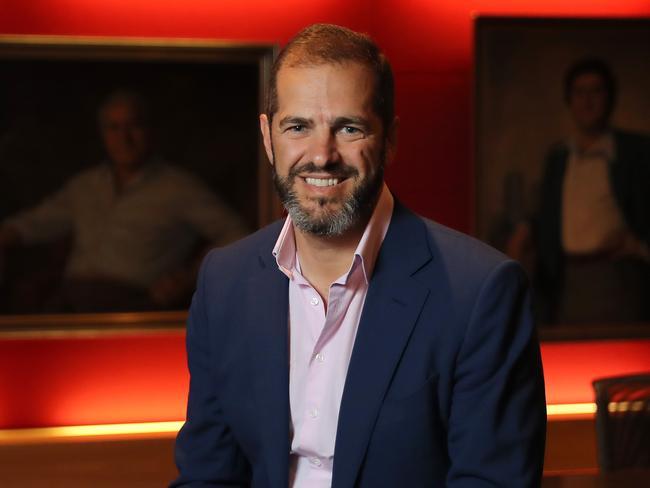
Creditor APN Property Group is also pushing for a liquidation and an in-depth examination of Mr Grollo’s financial position, including his new built-to-rent empire, as it seeks to claw back funds on a soured Melbourne development deal.
The second meetings of Grocon creditors was originally scheduled for December 23, at which time Mr Grollo had flagged he would put up a deed of company arrangement. But the meeting was postponed following permission granted by the Victorian Supreme Court and the administrators’ report to creditors, scheduled for Wednesday, has been delayed.
Perry Williams 11.15am: ‘Rules must solve’ coal spat
Australia and China must resolve a coal ban and use a rules-based system to restore stability to their trading relationship, the Minerals Council of Australia said.
Beijing formalised the blacklisting of Australian coal to the world’s biggest energy consumer on the weekend, devastating the $14bn trade between the two nations.
“The MCA is aware of media reports from China that coal exports from Australia face further restrictions,” Minerals Council chief executive Tania Constable said.
“The success of this relationship has relied on a rules-based trade system, which has supported many years of economic growth and job creation, especially in Australia’s regions.
The MCA encourages the Australian and Chinese governments to work together to resolve these issues and restore stability to the long-term trading relationship.”
The coal standoff caps a rocky few days for Australia’s big commodity exports, with its two biggest iron ore producers, BHP and Rio Tinto, also called in for a dressing down by China’s steelmakers seeking an explanation over high prices.
10.45am: Cochlear loses patent appeal
Cochlear said it has lost a final appeal against $US280 million in patent infringement damages against the hearing implant manufacturer, ending a long-running legal case.
Cochlear on Tuesday said the petition was its final appeal against the 2018 judgment for damages relating to a lawsuit filed by the Alfred E. Mann Foundation for Scientific Research and Advanced Bionics. Cochlear said the patents have expired and there is no possibility of further damages related to them.
Cochlear paid the full amount, which included interest and legal costs, in the 2020 fiscal year. The damages dragged the firm to an annual net loss of $238.3m.
Dow Jones Newswires
Adeshola Ore 10.40am: ‘Clarify coal ban reports’
Trade Minister Simon Birmingham has urged China to clarify reports that it has banned Australian coal.
Overnight, the Chinese state-owned media outlet Global Times reported that Beijing has blocked Australia’s coal imports.
“The easiest way for China to deal with this is to simply make it clear that it’s not true,” Mr Birmingham said in Sydney.
Mr Birminghan said Australia’s formal action against China’s barley tariffs was “imminent.”
“We’re close to making a final decision in that regard,” he said.
10.31am: ASX dips 0.4 as resources tumble
Australia’s share market fell 0.4pc to 6631.8 to a seven-day low of 6631.8 in early trading after overall negative offshore leads.
But it pared about half its fall to be down 0.2pc at 6645 in the first half hour of trading.
Market sectors were mixed with falls in Energy, Materials, Utilities, Financials and Tech partly offset by gains in the Consumer Staples, Consumer Discretionary, Real Estate, Industrials and Health Care sectors.
Mesoblast dived 10pc after mixed results from its Rexlemestrocel-L drug trial.
Whitehaven Coal fell 6.2pc after China formally banned imports of Australian coal.
Fortescue and BHP fell more than 2pc after spot iron ore fell 3.9pc to $US154.50 a tonne, and as the China Iron & Steel Association called on China’s regulators to investigate “failed” iron ore pricing.
Major banks fell with NAB down 0.5pc as APRA’s decision to scrap its minimum earnings retention rule for banks at the start of next year was widely anticipated.
Eli Greenblat 10.22am: ACCC sues Retail Food Group over franchises
The ACCC has begun proceedings in the Federal Court, alleging Retail Food Group
engaged in unconscionable conduct and made false or misleading representations in its dealings with franchisees, in breach of consumer law.
The food and beverage franchise company operates brands including Michel’s Patisserie, Brumby’s Bakery, Donut King and Gloria Jean’s Coffee.
The ACCC alleges Retail Food Group acted unconscionably and engaged in false, misleading and deceptive conduct when it sold or licensed 42 loss-making corporate stores to incoming franchisees between 2015 and 2019.
It is alleged Retail Food Group withheld important financial information from the incoming franchisees who were purchasing or licensing the loss-making corporate stores, and made false or misleading representations to them about the viability or profitability of the stores.
“We allege that Retail Food Group withheld critical profit and loss information about these corporate stores from incoming franchisees, and falsely represented that these loss making stores were viable or profitable,” ACCC chairman Rod Sims said.
In documents issued to incoming franchisees, Retail Food Group claimed it could not estimate earnings for a particular franchise. The ACCC alleges rather that Retail Food Group knew the earnings of each loss-making store, and was well aware that the stores being sold or licensed had been loss-making in the current or the previous financial year.
The ACCC is seeking declarations, injunctions, pecuniary penalties, disclosure and adverse publicity orders, a compliance program order, redress orders, and costs.
Ben Wilmot 10.20am: Lowy-backed fund rising capital
The Lowy Family Group-backed Assembly Funds Management has closed the second round of equity funding for Australian Diversified Property Fund 1, raising a further $53m to bring the vehicle’s equity to $207m.
Assembly was set up in mid-2019 by Michael Gutman, the former global chief operating officer, president and director of Westfield prior to the takeover by Unibail Rodamco in mid-2018.
AFM is a Sydney-based partnership between Michael Gutman, Lowy Family Group and Alceon Group, and has a broad real estate mandate across a variety of asset classes in Australia and New Zealand.
But it has steered clear of offices and the traditional mainstay of the Lowy family, shopping centres, despite patriarch Frank Lowy co-founding the Westfield empire before the family exited last year. The fund has instead focused on residential, large format retail and alternative asset classes.
The fund initially raised $154m in equity from wealthy investors in September last year and has now won more backers hoping to find commercial property bargains.
10.12am: Cbus to push on with Media Super merger
Industry super major Cbus said it will push ahead with the next stage of its previously announced merger with the smaller Media Super.
“The funds will now commence work on a merger plan, which will integrate investment, administration and operations over the next year with both Cbus and Media Super retaining their brands,” the super funds said in a joint statement.
Media Super is the industry super fund for the printing, entertainment, arts and media industries. Cbus is the industry super fund for the building, construction and allied industries. A merger will create a fund managing approximately $60bn with more than 840,000 members nationally.
“This partnership brings together two strong and aligned industry super funds. Together Cbus and Media Super can deliver more for members, delivering the tailored, industry-specific products members need with greater scale and efficiencies. I am very pleased to be announcing that the merger is progressing,” said Cbus Super chair Steve Bracks.
The merger is scheduled to be complete late 2021.
Ben Wilmot 10.10am: Contractors chase Powerhouse job
A trio of top contractors has been short-listed to build Sydney’s Powerhouse Parramatta, with Lendlease, Multiplex and Richard Crookes Constructions vying for the job.
The museum has been pitched as a $1bn piece of infrastructure for western Sydney but has been dogged by claims its location is prone to flooding and for heritage issues.
NSW Minister for the Arts Don Harwin said a number of outstanding builders wanted to deliver the project and it was hard to narrow the list to three.
The museum will have more than 18,000sq m of exhibition and public space to house the museum’s collection of over half a million objects.
Eli Greenblat 9.50am: ACCC concerned about Woolies’ PFD deal
Woolworths’ plan to expand its presence in the food services industry via a $552 million investment in leading provider PFD Food Services has been tripped up by the competition regulator, which has expressed concerns the deal could hand Woolworths too much power when dealing with food manufacturers.
The Australian Competition and Consumer Commission on Tuesday said it has outlined preliminary competition concerns with Woolworths’ proposal to acquire 65 per cent of PFD.
PFD is a wholesale food distributor, purchasing a wide range of food products from manufacturers and distributing them to food service businesses such as restaurants and cafés, fast food franchises, hotels and clubs.
Woolworths announced in August a deal to buy an initial 65 per cent stake in PFD for $552m. The founding Smith family will retain a 35 per cent stake.
“The ACCC is concerned that the proposed acquisition seems likely to increase Woolworths’ already substantial bargaining power in its dealings with food manufacturers,” ACCC Chair Rod Sims said.
Woolworths and PFD both acquire food and groceries from suppliers such as frozen food manufacturers, dairy processors and manufacturers of pasta and sauces.
“The ACCC is concerned that the proposed acquisition would remove PFD as an important alternative customer in the food sector, reducing the number of buyers and increasing Woolworths’ relative size as a customer of food manufacturers and suppliers,” Mr Sims said.
The ACCC is also considering whether the proposed acquisition could affect downstream competition.
Woolworths CEO Brad Banducci said the supermarket giant was “confident that we will address any outstanding potential concerns so that we can progress the proposed partnership”.
“We see no reduction in competition, in any relevant markets, from our proposed partnership with PFD.”
The ACCC’s final decision will be announced on April 22.
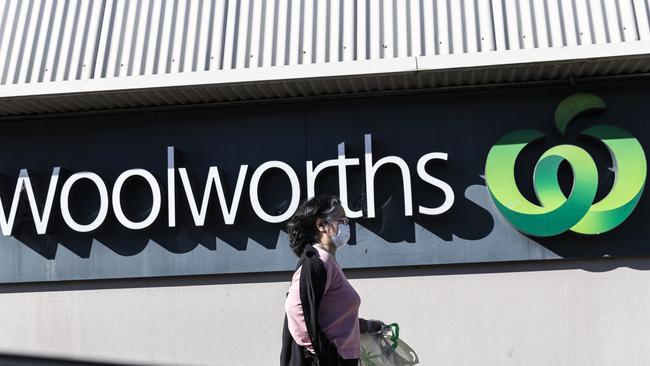
9.41am: ASX set to slip at open
Australia’s share market is expected to fall slightly, based on offshore leads.
Overnight futures relative to fair value suggest the S&P/ASX 200 will open down about 0.2pc.
That follows a mixed performance on Wall Street, with the S&P 500 down 0.4pc and the Nasdaq up 0.5pc.
Despite optimism about the COVID vaccine rollout in the US and encouraging rhetoric on fiscal stimulus, the market fretted about the worsening pandemic which now threatens a complete shutdown of New York city.
The spot iron ore price fell 3.9pc to $US154.50 a tonne as the China Iron & Steel Association called on China’s regulators to investigate “failed” iron ore pricing.
And while WTI crude rose 1pc to $US47.04, it fell almost 2pc intraday after OPEC reduced its projections for global fuel consumption in the first quarter of 2021 by 1 million barrels a day
Base metals were mixed on Monday, with nickel up 1.8pc to a 14-month high on strong Chinese demand.
Perhaps the biggest news today is APRA’s scrapping of a minimum 50pc earnings retention by banks, but this was widely expected.
Focus turns to RBA Minutes at 11.30am AEDT and China’s monthly economic activity data at 1pm AEDT.
The biggest known event this week will be the outcome of the FOMC meeting early Thursday Australian time.
9.23am: Positive result for Mesoblast treatment
Mesoblast has released positive phase 3 trial results of Rexemestrocel-L for advanced chronic heart failure.
“The trial results show that rexlemestrocel-L significantly reduces cardiovascular mortality when used early in heart failure patients at risk of disease progression, and provides durable protection from heart attacks or strokes in these vulnerable patients,” said the trial’s co-principal investigator Dr Emerson Perin, Director of the Center for Clinical Research, Medical Director of Texas Heart Institute, and Clinical Professor, Baylor College of Medicine.
“New therapies have not materially reduced the high death rates from cardiovascular disease which is why these data have the potential to change the treatment paradigm for patients with advanced chronic heart failure.” Mesoblast Chief Medical Officer Dr Fred Grossman said.
“We expect the mortality benefit observed in this seminal Phase 3 trial will support a potential path for approval of rexlemestrocel-L in patients with advanced chronic heart failure.
“We are planning to meet and discuss potential pathways to approval based on mortality reduction with the United States Food and Drug Administration.”
9.15am: APRA eases bank dividend guidance
APRA has updated its capital management guidance for banks and released stress test results.
From the start of calendar 2021, the regulator will no longer require banks to have a minimum level of retained earnings.
Thus it will remove its requirement since July that banks retain at least half their earnings - a move was widely expected by analysts after the stronger-than-expected economic rebound in the second half of 2020.
“Since July, there has been an improvement in the economic outlook, bank capital and provisioning levels have strengthened, and the majority of loans that were previously granted repayment deferral have recommenced repayments,” APRA says in a statement.
“However, a high degree of uncertainty remains in the outlook for the operating environment.”
But APRA says that in determining the appropriate level of dividends, it expects banks and insurers to “remain vigilant, regularly assess their financial resilience through stress testing, and undertake a rigorous approach to recovery planning.”
“The onus remains on boards to moderate dividend payout ratios to ensure they are sustainable, taking into account the outlook for profitability, capital and the broader environment,” it says.
9.12am: Downer sells WA mining business
Downer EDI is selling its West Australian open cut mining business to MACA Limited for $200m in cash.
The sale will result in the transfer of assets including fleet and inventory and liabilities, and the novation of the existing contracts, to MACA.
The $200m deal comprises the sale price of $175m as well as about $30 from the unwinding of working capital balances.
Downer says talks are continuing with interested parties over other parts of its mining portfolio.
9.04am: What’s impressing analysts?
AGL cut to Sell: UBS
Altium cut to Hold: Jefferies
Alumina cut to Neutral: JPMorgan
Appen cut to Neutral: price target cut 38pc to $27.50: UBS
BHP price target raised 16pc to $60: JPM
Booktopia started at Buy: Shaw & Partners
Fortescue price target raised 41pc to $28.80: JPM
Gr Engineering started at Buy: Bell Potter
Mineral Resources price target raised 16pc to $35.20: JPM
Oz Minerals price target raised 21pc to $21: JPM
SeaLink cut to Sector Perform: RBC
Regis Resources raised to Neutral: Macquarie
Rio Tinto price target raised 16pc to $35.20: JPM
8.43am: Ampol won’t accept subsidy until Lytton decided
Ampol says it will defer a decision on whether to accept a federal government subsidy until a final decision is made on the future of its Lytton refinery.
Under an emergency rescue package for Australia’s ailing oil refineries, refiners will receive a minimum payment of 1c per litre for production of petrol, diesel and jet fuel from January 1.
Ampol is currently undertaking a comprehensive review of the Lytton refinery to determine
the best operating model, with all options under consideration.
“Ampol will defer a decision on receipt of the production payment until it becomes clear that Ampol can meet the terms of the production payment, which is likely to be when a final decision is made on the future of the Lytton refinery,” it told the ASX.
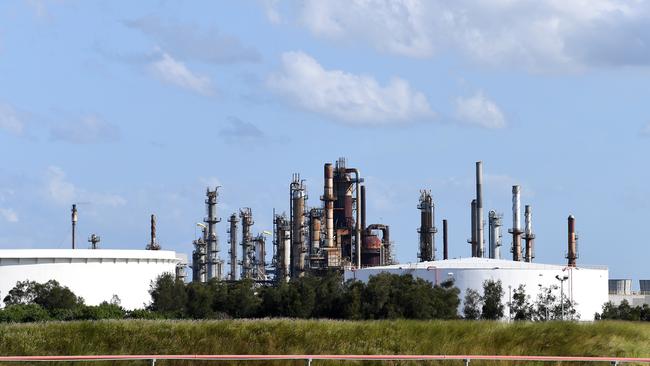
8.30am: ANZ sells commercial payments stake, enters JV
ANZ will come under focus with French-based payments company Worldline announcing it has acquired a 51 per cent stake in the bank’s commercial payments business for a cash consideration of $485m.
The deal will see the creation of a joint venture controlled by Worldline to operate and develop commercial acquiring services in Australia with ANZ Bank. ANZ will continue to hold the minority stake.
Acquirers, also known as merchant acquirers, collect card based payments which have been accepted from retailers to be sent to card issuers such as Visa and MasterCard networks.
The sale follows The Australian’s DataRoom column on November 16 foreshadowing the deal, which values the ANZ business at just under $1bn.
ANZ group executive Australia retail and commercial, Mark Hand said: “We have a proven
track-record of partnering with global leaders in specialist fields if it means providing a
better service to our customers.
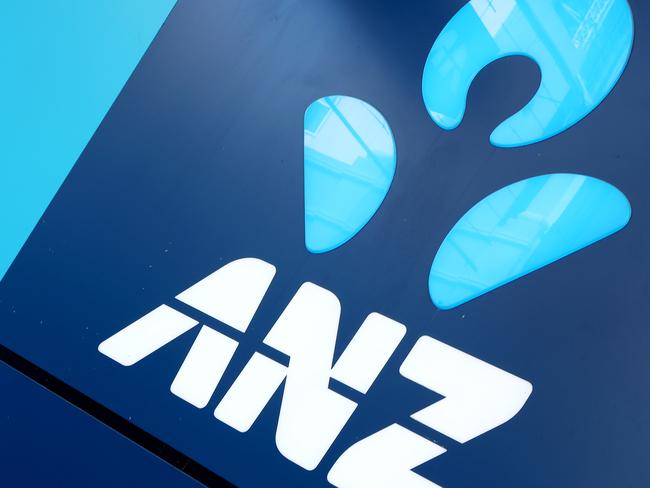
“Receiving fast and secure payments is key to running a successful business and this
partnership will provide our customers with access to some of the most advanced payments
technology currently available, as well as future innovations, to improve the speed and
security of point-of-sale and online payments.
“The partnership also responds to the fast-changing way that consumers want to pay for
goods and services, particularly in a post-COVID environment,” Mr Hand said.
ANZ estimates that completion of the transaction will increase its Level 2 CET1 capital ratio by five basis points. The transaction is expected to complete in late 2021 and is subject to approvals and card scheme arrangements.
Earlier, Worldline’s CEO Gilles Grapinet said Australia is a “highly attractive strategic market” as it is very close to Europe in terms of market structure, standards and technology, with a high level adoption of electronic payments.
“Backed by a solid macroeconomic environment and a strong long-term growth potential, the Australian market represents a rare opportunity to scale-up our platforms and roll-out our innovative solutions in very close partnership with such a leading institution as ANZ,” Mr Grapinet said.
7.00am: Coal ban a punishment: report
Confirmation by Chinese state media that Beijing has blocked Australian coal imports also seems to reaffirm that the ban is an act of economic punishment, and that it is likely to continue, the ABC reports.
Beijing has formalised its blacklisting of Australia’s $14bn annual coal exports to China at a high level meeting held over the weekend, deepening a crisis for one of the nation’s biggest export earners.
The National Development Reform and Commission met with major Chinese power companies on Saturday to address a surge in coal prices in the world’s second biggest economy, according to state media reports.
Chinese state-owned media outlet The Global Times appears to have confirmed the ban. Trade Minister Simon Birmingham has called on Chinese authorities to “rule out” the Global Times report, the ABC reports.
China has unofficially banned Australian coal imports since October, leaving dozens of bulk carriers stranded offshore. Chinese authorities had blamed “environmental problems” for the delays.
But Global Times quotes Wang Yongzhong, director of the Institute of Energy and Economy at the Chinese Academy of Social Sciences, who warns “Australia is gradually losing the Chinese market”.
He says China is sourcing coal from Indonesia, Russia and from Mongolia, which “could take a large share from Australian coal, as the relationship between China and Australia has been deteriorating”.
8.19am: Amaysim heads for WAM takeover
Amaysim Australia is recommending its shareholders accept a full off-market takeover by
WAM Capital.
It comes after Optus last month paid $250m to buy Amaysim, merging second and fourth largest mobile phone operators.
As part of the move, Amaysim will be wound up.
The WAM offer is conditional on Amaysim shareholders approving the Optus deal.
WAM chairman Geoff Wilson said: “We see a considerable opportunity to provide Amaysim shareholders with a superior and complementary proposal. We look forward to welcoming the amaysim shareholders to the Wilson Asset Management family as we continue to grow WAM Capital”.
8.15am: ASX poised to slip at open
Australian stocks are set to open lower as Wall Street faded, despite early optimism about the vaccine rollout and fiscal stimulus.
At about 8.00am (AEDT) the SPI futures index was down 18 points, or 0.3 per cent.
Yesterday, the ASX closed down 0.3 per cent.
The Australian dollar ticked up to US75.43c.
The price of iron ore retreated, down 3.9 per cent to $US154.50 a tonne.
Brent oil is up 0.6 per cent to $US50.29 a barrel.
8.06am: Nasdaq extends rally, Wall Street mixed
US technology stocks climbed, continuing a robust 2020 rally that has propelled much of the market’s gains since March.
The Nasdaq Composite Index, home to many of the U.S.’s biggest tech stocks, outperformed its peers. The benchmark ticked up 62.17 points, or 0.5pc, to 12440.04, bringing its gains for the year to 39pc.
The S&P 500 edged down 15.97 points, or 0.4pc, to 3647.49. The tech sector was the only of the index’s 11 groups to finish the day in the green.
The Dow Jones Industrial Average slipped 184.82 points, or 0.6pc, to 29861.55, reversing a morning gain of as much as 279 points. The S&P and Dow are up 13pc and 4.6pc, respectively, for the year.
All three indexes opened higher on optimism that talks for additional fiscal stimulus are progressing and that the rollout of Covid-19 vaccines could help stem the pandemic.
US lawmakers on Sunday signalled a growing willingness to compromise on the most contentious issues that have held up the passage of a fresh coronavirus-relief package in recent months. Leadership from both parties indicated they might look to passing a narrower spending bill. Investors are betting that a deal will be struck, and the additional spending will help bolster the economic rebound.
Pfizer started shipping its Covid-19 vaccine in the US, dispatching trucks from a Michigan plant. That is bolstering optimism that rising infection levels may be checked in coming months, prompting an end to restrictions on social and business activity. An end to lockdowns would improve the outlook for companies whose operations have been disrupted this year by the pandemic.
In corporate news, Alexion Pharmaceuticals rose 30pc after AstraZeneca agreed to buy the Boston-based company for $US39 billion in cash and stock. Shares of AstraZeneca fell about 7pc.
Overseas, the pan-continental Stoxx Europe 600 rose 0.4pc.
Dow Jones Newswires
Adeshola Ore 8.03am: China WTO action ‘very close’
Trade Minister Simon Birmingham says Australia is “very close” to taking formal action with the World Trade Organisation over China’s barley tariffs.
It comes after the Chinese state-owned media outlet The Global Times confirmed a ban on Australian coal imports. The Australian government raised concerns with the WTO about China’s targeted sanctions against Australian exports. But Mr Birmingham told the ABC the government was preparing to launch formal action.
“We are very, very close in terms of finalising on the matter of barley and that is essentially the most imminent due to the nature of the action in finalising their dumping case in which we dispute the evidence and the findings they have made,” he said.
“We are well prepared in terms of the analysis we have undertaken to mount that case and in terms of finalising the case with Australian industries to move forward.”
Mr Birmingham said he was “deeply troubled” by the reports of China blocking Australian coal imports.
“If true, they would indicate discriminatory trade practices being deployed by Chinese authorities and we would urge them to rule them out.”
7.40am: Top Pushpay execs offload shares
Donor management company Pushpay will conduct a bookbuild to facilitate the sale of shares by co-founder Chris Heaslip and executive director Chris Fowler.
Being sold are 54.7 million shares, or 4.96pc of the issued capital.
Mr Heaslip, the former CEO, is selling 41.7m shares, while Mr Fowler is selling 13m shares.
Following the transaction, the Heaslip stake in Pushpay will reduce from 4.0pc to 0.2pc and the Fowler stake will fall from 2.4pc to 1.2pc.
The selldown is underwritten at a floor price of $NZ1.75 per share, which represents a discount of 7.4pc to the last closing price of $NZ1.89 on December 14.
Pushpay has also reiterated its full-year operating earnings guidance of $US54m to $US58m.
6.20am: US stocks mixed amid vaccine, stimulus hopes
US stocks rose early on optimism that talks for additional fiscal stimulus are progressing and that the rollout of COVID-19 vaccines could help stem the pandemic.
But they lost ground in early afternoon trade, with the Dow Jones Industrial Average fading to be down 0.3 points and the S&P 500 edging down 0.1 per cent. The Nasdaq Composite was up 0.7pc.
US lawmakers on Sunday signalled a growing willingness to compromise on the most contentious issues that have held up the passage of a fresh coronavirus-relief package in recent months. Leadership from both parties indicated they might look to passing a narrower spending bill. Investors are betting that a deal will be struck, and the additional spending will help bolster the economic rebound.
“In the US, it is all about fiscal policy,” said Justin Onuekwusi, head of retail multiasset funds at Legal & General Investment Management. “The markets have priced some of this in and believe it is going to happen.”
Pfizer started shipping its COVID-19 vaccine in the U.S., dispatching trucks from a Michigan plant. That is bolstering optimism that rising infection levels may be checked in coming months, prompting an end to restrictions on social and business activity. An end to lockdowns would improve the outlook for companies whose operations have been disrupted this year by the pandemic.
In corporate news, Alexion Pharmaceuticals rose 31pc after AstraZeneca agreed to buy the Boston-based company for $US39 billion in cash and stock. Shares of AstraZeneca fell about 6pc.
Overseas, the pan-continental Stoxx Europe 600 rose 0.4pc.
Trading in Asia ended on a mixed note. China’s Shanghai Composite Index advanced 0.7pc, and Japan’s Nikkei 225 edged 0.3pc higher. South Korea’s Kospi declined 0.3pc.
Dow Jones Newswires
5.30am: Oil tanker attacked at Saudi port
A boat loaded with explosives attacked an oil tanker docked at the Saudi port city of Jeddah in what the authorities there called an act of terrorism, the latest in a string of strikes against the kingdom’s oil infrastructure in recent weeks.
Monday’s attack comes amid heightened tensions in the Middle East between Iran and the U.S. and its regional allies after the killing last month of one of the Islamic Republic’s top nuclear scientists. While no one has claimed the strike yet, it raises the stakes for diplomacy in the tumultuous region for the incoming Biden administration. Officials have repeatedly warned of the potential threat to international trade posed by such attacks, which target Saudi Arabia’s economic engine.
The attack caused a blast and a fire on the Singapore-flagged BW Rhine, according to Hafnia Ltd., which owns and operates the vessel. The fire was extinguished and all 22 sailors -- including nationals from the Philippines, India, China and Romania -- were unhurt, the company said. The ship’s hull was damaged in two locations and some oil may have leaked, it added.
It also exposed security vulnerabilities in the kingdom by targeting a vessel while at a Saudi port. The country’s ports are better protected than offshore waters, where most previous attacks have occurred.
The price of Brent, the international oil benchmark, was about flat up at $50.28 a barrel.
Dow Jones Newswires
5.15am: ExxonMobil pledges emissions cut
ExxonMobil announced it will reduce its emissions over the next five years bowing to growing public pressure from activists, including the Church of England, to make changes.
The US oil giant said in a statement that by 2025 it will cut emissions from upstream activities, which includes oil drilling and extraction, by between 15 and 20 per cent compared to the 2016 levels.
It also will cut its flaring intensity by 35 to 45 per cent as well as methane intensity by 40 to 50 per cent, and aims to achieve a World Bank goal of eliminating routine flaring by 2030, the company said, describing the moves as consistent with goals outlined in the Paris Climate Agreement.
“These meaningful near-term emission reductions result from our ongoing business planning process as we work towards industry-leading greenhouse gas performance across all our business lines,” ExxonMobil chairman and CEO Darren Woods said in the statement.
The company is facing an activist shareholder push to get it to act more forcefully on reducing carbon emissions, led by investment firm Engine No. 1 and supported by California State Teachers’ Retirement System, the second-largest pension fund in the United States.
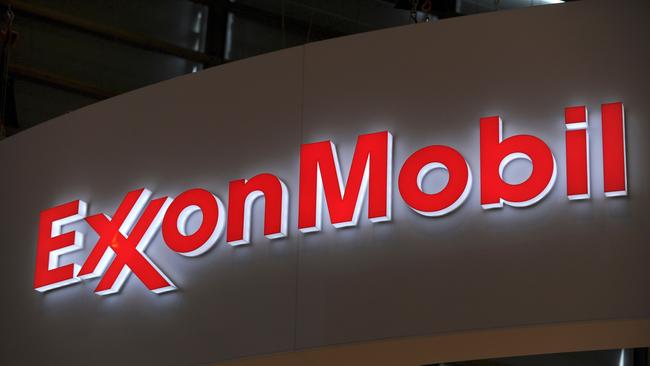
AFP
5.10am: Vaccine, Brexit hopes buoy global stocks
European and US stock markets gained ground, buoyed by COVID-19 vaccine optimism, expectations of fiscal support from Washington and hopes of a last-minute Brexit deal.
In morning trading, the Dow Jones Industrial Average climbed 0.4 per cent as a New York nurse became the first person in the US to receive the Pfizer-BioNTech inoculation following its emergency authorisation last week.
The broader-based S&P 500 was up by a similar amount, with markets also eyeing a $908 billion bipartisan stimulus plan set to be presented by lawmakers Monday.
“Encouraging news about COVID-19 vaccines has boosted hope for stronger growth,” Charles Schwab analysts noted.
The rollout of vaccines is keeping traders optimistic, even as surging infections force governments to impose strict containment measures, with Germany the latest to announce a lockdown.
In Europe, glimmers of hope for a last-minute Brexit deal kept markets looking up through the close of trading, with Germany’s DAX 30 adding 1.0 per cent, the French CAC 40 0.5 per cent and the Euro Stoxx 50 0.7 per cent. London was down 0.1 per cent.
An EU diplomat said that the Brussels’ chief negotiator with London Michel Barnier had spoken of a “narrow path” to a trade deal to govern relations once a standstill transition period expires on December 31.
Prime Minister Boris Johnson and EU chief Ursula von der Leyen had said after a crisis call that they would “go the extra mile” to find common ground in long-running talks between Brussels and London.
They agreed to extend the negotiations beyond the Sunday deadline, with sticking points on issues including fishing rights and fair trade regulations.
The news gave the pound a boost against the dollar and euro, although Johnson warned a deal was far from sure with less than three weeks until Britain leaves the single market on December 31.
AFP
5.08am: Draft EU laws propose fines, bans for tech giants
Draft EU rules to be unveiled would see tech giants face huge fines or banned from the market for breaches, sources said, posing a major challenge to the likes of Google and Facebook.
The EU Commission is gearing up to present its long-trailed Digital Services Act and its accompanying Digital Markets Act to lay out strict conditions for internet giants to do business in the 27 countries.
EU sources said the landmark legislation would see tech behemoths facing fines of up to 10 per cent of their revenues for breaking some of the most serious competition rules.
It could also see some of the world’s biggest firms banned from the EU market “in the event of serious and repeated breaches of law which endanger the security of European citizens”, the sources said.
The proposals -- which could revolutionise how Big Tech does business -- aim to tackle hate speech and disinformation online and curb the might of leading firms to dominate markets.
The largest companies would be designated as internet “gatekeepers” under the legislation, subject to specific regulations to limit their power over the market.
Some ten firms -- including Google, Facebook, Apple, Amazon and Microsoft -- will be slapped with the designation.
The draft laws will go through a long and complex ratification process, with the EU’s member states, the European Parliament, and company lobbyists and trade associations influencing the final law.
AFP
5.06am: Bipartisan US stimulus plan set for release
US lawmakers were set to introduce a bipartisan $US908 billion stimulus proposal aimed at breaking a lengthy deadlock on spending to help the pandemic-ravaged economy.
The measure would pay for aid programs to state and local governments, the unemployed and small businesses and was supported by both Democrats and Republicans, but its chances for passage in the final weeks of President Donald Trump’s term remain unclear.
“We’re really hopeful this will be the package that will be part of the final agreement that we have to vote on this week,” Democratic House representative Josh Gottheimer, a member of the bipartisan group backing the proposal, said in an interview on CNBC.
The bill would follow up on the $US2.2 trillion CARES Act rescue package passed in the COVID-19 pandemic’s early days, which was credited with keeping the US economy from a more severe downturn even as its major provisions have expired in recent months.
Lawmakers from both parties as well as the Trump administration have been deadlocked for months on passing a follow-up measure, with the sides unable to agree on how much to spend, and what to spend it on.
The $US908 billion bill is supported by the bipartisan Problem Solvers Caucus comprised of legislators from both parties, but it remains unclear if it will earn the support of party leaders as well as Trump, who is set to hand power to President-elect Joe Biden in January.
Treasury Secretary Steven Mnuchin last week unveiled a $US916 billion proposal, but it attracted little support among Democrats, who control the House of Representatives.
AFP
5.04am: Adidas mulling potential sale of Reebok
German sportswear giant Adidas said it was mulling a sale of its long-struggling US subsidiary Reebok.
“Adidas has begun to assess strategic alternatives for Reebok,” the company said in a statement, adding these “include both a potential sale of Reebok as well as Reebok remaining a part of the company”.
A decision will be announced on March 10, it added, when the group will present a new five-year strategy.
Adidas acquired Boston-based Reebok in 2006 for 3.1 billion euros ($US3.8 billion) to take on US rival Nike. But the brand has struggled to grow under its German owner, frequently fuelling speculation of a sale.
The brand is now worth only 803 million euros, after several accounting writedowns, the last of which occurred in August after a 42 per cent drop in sales in the second quarter to 228 million euros.
Germany’s Manager Magazin reported in October that China’s Anta Sports and North Face owner VF Corp. were interested in acquiring Reebok.

AFP
5.00am: Massive outage hits Google services worldwide
A massive outage knocked Google services including Gmail and video sharing platform YouTube offline across much of the globe.
Within minutes, social media sites were awash with hashtags including #googledown and YouTubeDOWN as hundreds of millions of internet users tried vainly to connect to the US search engine.
Google indicated the outage had affected all of its services for the “majority” of users.
The outage began at approximately 1150 GMT and by 1230 GMT Google said that services had been restored for some users and said services should soon be restored for all users.
All of Google’s main services appeared to be affected including Gmail, Google Maps, Google Drive, and YouTube.
But the breakdown apparently did not affect all users as some indicated the services remained operational even during the worst of the breakdown.

AFP
4.58am: AstraZeneca shares slide on deal doubts
Shares in British pharmaceuticals group AstraZeneca slumped on investor doubts over a gigantic $US39 billion purchase of US biotech firm Alexion, analysts said.
AstraZeneca, which is finalising a vaccine against COVID-19, announced the vast acquisition on Saturday in order to boost its work on immunology.
The blockbuster transaction is the largest M&A deal in the global pharmaceutical sector since the start of the deadly COVID-19 pandemic.
In early afternoon London deals, the company’s share price dived 6.9 per cent to 7,595 pence. That made AstraZeneca the biggest faller on London’s benchmark FTSE 100 stocks index, which rose 0.3 per cent on hopes of a Brexit trade agreement.
Both the boards of Alexion and AstraZeneca agreed to the deal, which values Alexion at $US175 a share -- a premium of 45 per cent to the Boston-based company’s closing price on Friday.
AFP
4.55am: Tech giants will need to inform EU of takeover plans
Tech giants will need to inform the European Union ahead of any planned mergers or acquisitions under tough new regulations set to be unveiled this week, the bloc’s industry commissioner Thierry Breton said.
The EU is set to present on Tuesday its new Digital Services Act and its accompanying Digital Markets Act to lay out strict conditions for internet giants to do business in the 27 countries.
The biggest tech firms will be designated internet “gatekeepers”, subject to specific regulations to limit their power over the market.
“We’re going to require big platforms to notify us before they make an acquisition” as part of the new regulations, Breton told France Inter radio.
Google, Facebook, Apple and Amazon, and maybe others, will almost certainly be slapped with the designation.
AFP
4.50am: ANZ sells stake in commercial acquiring business
Worldline says it has signed an agreement with Australia & New Zealand Banking Group Ltd. to acquire a 51pc stake in the bank’s commercial-acquiring business as the company seeks to expand its merchant-services business outside of Europe.
The French fintech company said the stake acquisition is for a cash consideration of around $485 million.
“Australia is a highly attractive strategic market as it is very close to Europe in terms of market structure, standards and technology, with a high level adoption of electronic payments.
“Backed by a solid macroeconomic environment and a strong long-term growth potential, the Australian market represents a rare opportunity to scale-up our platforms and rollout our innovative solutions in very close partnership with such a leading institution as ANZ,” said Worldline Chief Executive Gilles Grapinet.
The two companies are establishing a joint venture to operate and develop commercial-acquiring services in Australia, with Worldline retaining 51pc and ANZ the remaining 49pc.
The transaction is expected to close in the fourth quarter of 2021, Worldline said.
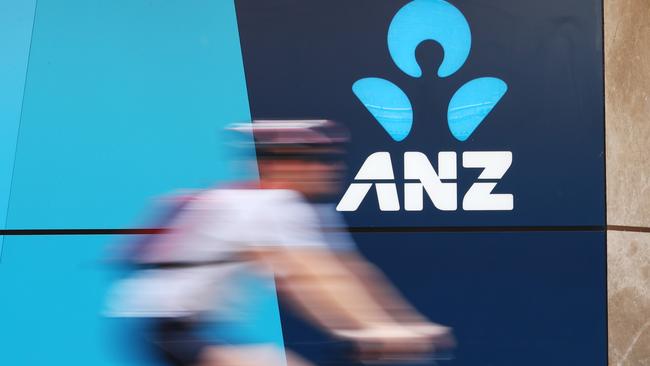
Dow Jones Newswires
4.40am: Danone to achieve gender parity on board
French food group Danone, maker of Evian water and Aptamil baby formula besides an eponymous line of yoghurts, said it intends to achieve gender parity on its board of directors next year.
The firm, which announced last month it will cut up to 2,000 jobs worldwide in a bid to streamline structures, unlock growth and improve profitability, unveiled a series of changes to the board.
Chairman and CEO Emmanuel Faber said in a statement that he is “glad to see that our board will include 50 per cent women and 71 per cent independent directors starting with the Annual General Meeting in April 2021.” The changes will also see outgoing chief financial officer Cecile Cabanis reappointed to the board as vice-chair.
AFP


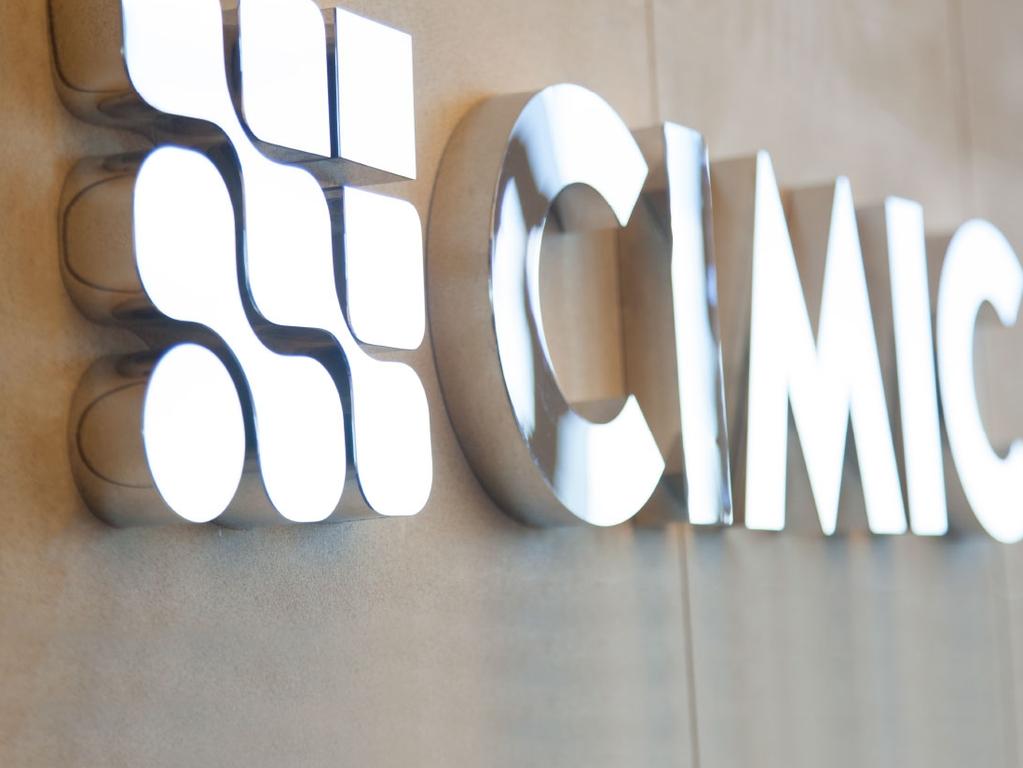


To join the conversation, please log in. Don't have an account? Register
Join the conversation, you are commenting as Logout